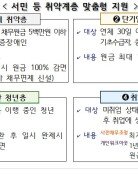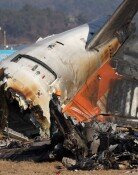Economy Showing Signs of Country-wide Recession
Economy Showing Signs of Country-wide Recession
Posted May. 19, 2003 21:53,
It`s terrible, I`m dying in this recession, said a taxi driver when asked about the country`s economic situation. Some drivers say that current times are worse than the financial crisis of 1997. Daegu saw its rate of bounced checks stand at 0.75% in April, an increase compared to the same period last year. Also, in March, productivity decreased by 1.8% from the same period last year.
At Hanam Industrial Complex, in Gwanju`s representative manufacturing district, 50 out of a total 500 industries have been shut down or moved to other areas following a string of bankruptcies. Production at the complex amounted to 1.017 trillion won in the first quarter of this year, a 30% decrease from the 1.485 trillion won in the last quarter of 2002.
Korea is suffering from a general recession all over the country.
In the beginning of the year, government and private institutes predicted that Korea`s economy would recover and that its growth rate would reach 6% if the war between the US and Iraq ended quickly. However, despite the early end of the war and glint of the SARS outbreak fading, the economy has not improved in the slightest. Moreover, the official economic forecast recently downgraded the target growth rate to 4%.
The economic outlook among consumers and industries has also chilled. For example, a 400 billion won textile company filed for bankruptcy last month in Daegu, and its 212 suppliers in the area are expected to suffer considerably.
At Gwangju`s Hanam Industrial Complex, a large car components manufacturer became insolvent, and an industrial machine manufacturer and oil filler manufacturer shut down due to low liquidity. According to the BOK (Bank of Korea) and KFTCI (Korea Financial Telecommunication and Clearing Institute), the number of bankrupt companies totaled 507 in April across the country, a record high in 27 months.
The current recession is heralding a serious lull in investments. There is increasingly growing concern that Korea`s industrial competitiveness is weakening and the manufacturing industry is hollowing out.
Big conglomerates including Samsung Electronics, LG Electronics, and Hyundai Motor are lining up to move domestic manufacturing facilities to other countries or limiting investment for building new facilities. Small and medium-sized companies are also joining the trend by moving to China or countries in Southeast Asia in order to avoid high labor costs and general labor shortages.
Due to low interest rates and economic recession, money is not being deposited into banks or the stock exchange and is merely floating around in the market. According to BOK, short period capital (less than 6 month expiry, including customer deposits) from financial institutes amounted to 387 trillion won in late March, an increase from 380 trillion won in late February of last year.
It is worrying that money is not going into production or investments, said Kim Do-hoon, an official at the Korea Institute for Industrial Economics and Trade (KIET), and added, uncertainty about economic recovery and economic policies, as well as labor disputes are blocking companies from further investments.






